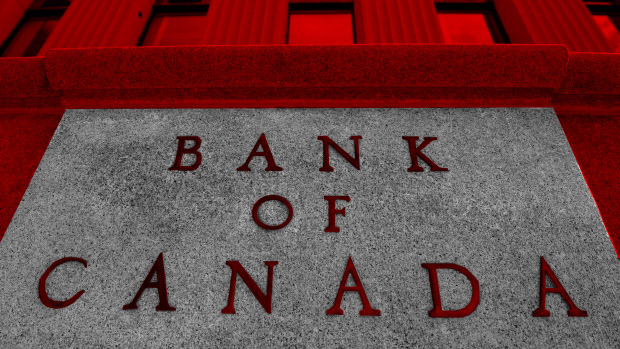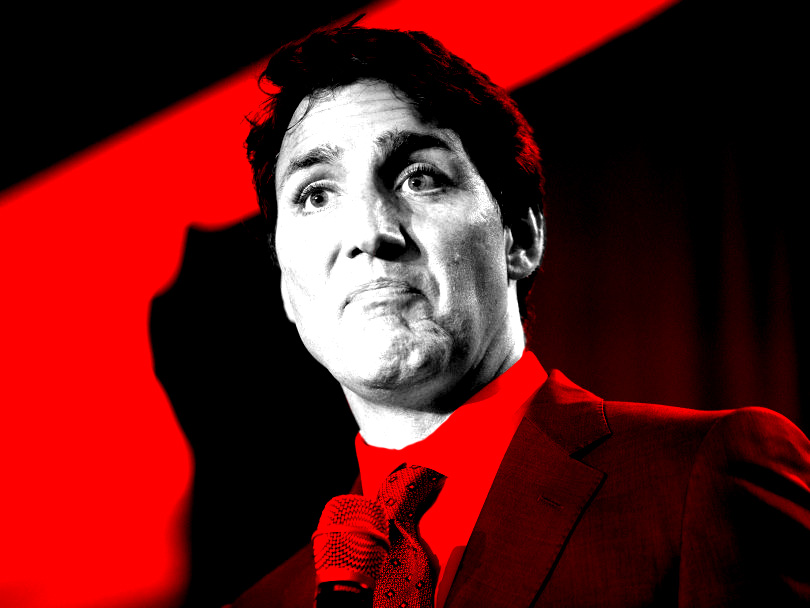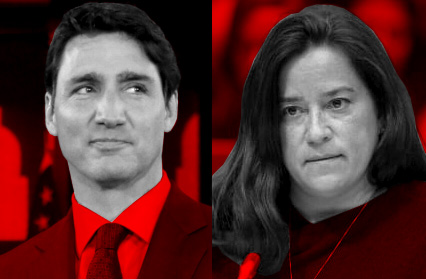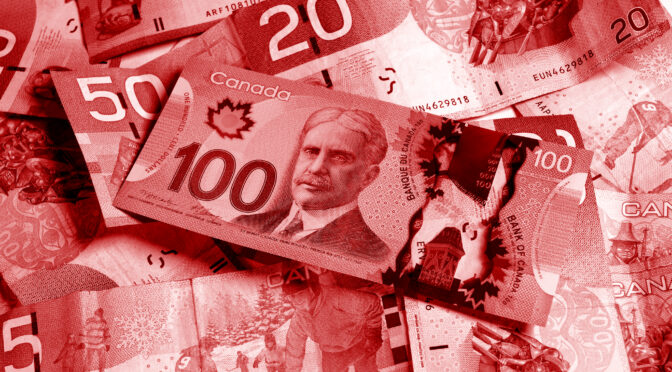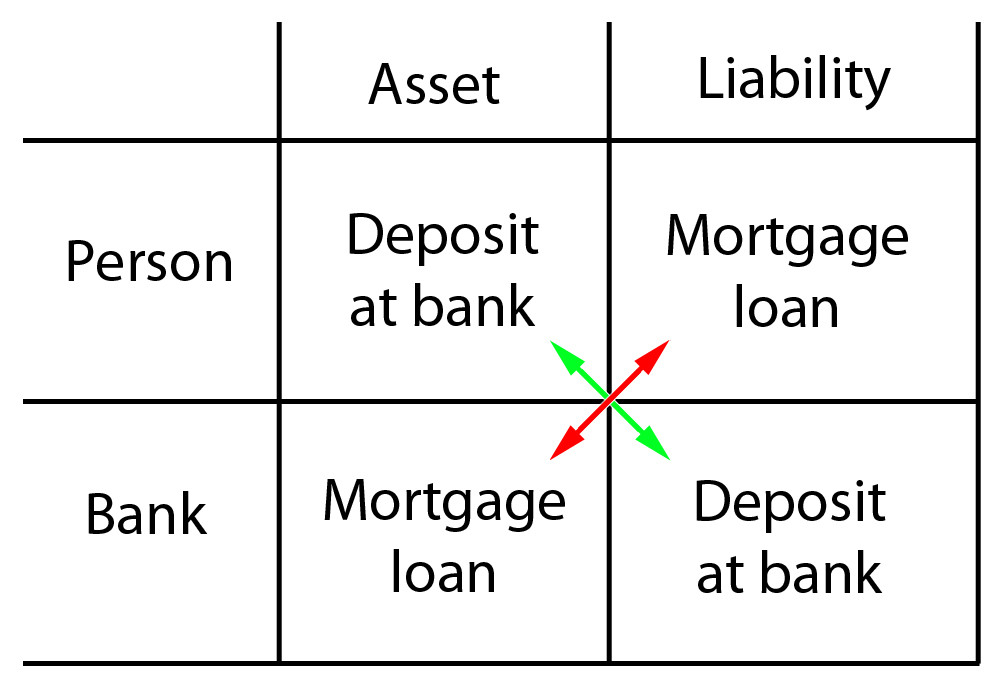There is a very strong case to be made for monetary reform in Canada, in particular increasing public money creation to fund deficits instead of always borrowing from capital markets. This type of money creation is called “monetary financing” and is achieved through the central bank buying government bonds instead of investors and private banks (so we owe the debt to ourselves) and spending that money into the economy without neutralizing it*. This would mean less burden of debt payments to investors, which take up a substantial part of the budget, and which is used an an excuse for unnecessary austerity measures to “balance the budget and reduce debt” (although paradoxically for conservatives you cannot reduce the debt without running a surplus, taxing more than spending).
*central banks, and notoriously the BoC, typically use open market operations and government reserve deposit auctions to “neutralize” or “sterilize” government spending. That is to say, the CB takes actions to ensure its spending new money into the economy is balanced by taking money or other assets (like bonds) out of the economy.
There is absolutely nothing standing in the way of this other than neoliberal ideology, particularly the ideology emanating from the Bank for International Settlements and their desire that central banks be neutral and autonomous. Now, while there is a case to be made for central bank neutrality considering the past mistakes of some governments, in a historical context those mistakes are usually symptomatic of larger often exogenous problems, and moves to use the central bank to solve the problem only exacerbates it. There is no reason a responsible government (and not in a panic trying to solve a crisis) would cause any ill effects to financial markets or the economy with a little more monetary financing. In fact, in a global economy of persistent stagnant growth, a little deficit spending through monetary financing could actually perk things up significantly. Deficit spending grows economies, austerity shrinks them.
Please enjoy my first attempt at making the case for public money creation in Canada, I will add to and evolve the argument over time as new evidence emerges.
First of all, debunking the intentionally inflammatory and fear mongering misinformation about past hyperinflations, the two most common tropes being Weimar and Zimbabwe. Well, money printing was the symptom, not the disease. In particular in Weimar the hyperinflation was happening FASTER than they could print the money, so clearly money printing was not the culprit:
“The empirical reality, both when looking at quantitative data and qualitative descriptions of what actually happens in hyperinflations, shows that they are not the results of well-governed states abusing the money creation process.
Indeed, the case study of Weimar Republic shows that it was not even Public Money Creation but private bank money creation that triggered hyperinflation.
The lessons from the above case studies suggest that hyperinflations do not happen simply because of an increase in money creation; indeed, the private banking sector in the UK more than doubled the money stock from 1997-2007 and we did not see experience hyperinflation. Hyperinflation in Germany and Zimbabwe was preceded by a fundamental collapse in the productive capacity of the economy, which started the inflationary pressure.
In both cases the economy collapsed and the government could not mobilize resources via taxation to fund expenditure. As was the case in Zimbabwe, desperate for funds, the government resorted to financing their spending through money creation. Hyperinflation was thus not a consequence of monetary policy but a symptom of a state that has lost control of its tax base.”
https://positivemoney.org/2015/12/hyperinflation-how-the-wrong-lessons-were-learned-from-weimar-and-zimbabwe-a-history-of-pqe-part-2-of-8/
On to Venezuela and the reality of what is happening versus the gross oversimplifications and demonizations of mainstream media. My knowledge is cobbled together from multiple sources over time, so there’s no one source that sums it all up, but these two get close:
https://www.youtube.com/watch?v=KAJIpPPftwY
mintpressnews.com/us-led-economic-war-not-socialism-tearing-venezuela-apart/218335/
More info on Canada’s embarrassingly obvious extreme neoliberal bias against Venezuela here and here. Now, that’s not to say Venezuela didn’t make some missteps and do some shady things, but it must be understood, in a globalized economy nothing happens in a bubble, and any nation not following the neoliberal playbook will be punished by other nations, as the US has done to Venezuela. And when I say “neoliberal playbook”, I mean, as one BIG example, the (supposedly non-binding) dictates of the Bank for International Settlements. Here’s it is from the horse’s mouth:
“Concerning the first aspect, monetary policy autonomy may be at risk if the central bank can be obliged to lend to the government or provide it with implicit or explicit subsidies in other ways, for example by supporting the price of government debt. Where financial markets are well developed, this risk is the principal reason why lending to government is typically prohibited when the central bank law is modernised, for example to comply with the Maastricht criteria in the case of actual or prospective euro area participants (Table 4 provides a snapshot of the frequency of such prohibitions). In emerging market economies, it is also important to address this risk, but there is a second reason why it is desirable to limit access to central bank credit by the government. This is to provide an impetus for the development of local money and bond markets, which will benefit from the government being motivated to develop a local market-based source of credit, and the critical mass the government’s borrowing needs may provide.
At the same time, practical experience shows that it can be very difficult to convince governments, particularly in low-income countries, to agree to a reform of the central bank law that includes the wholesale prohibition of lending to government. To address this problem, great efforts have been made to draft central bank laws that limit government access to or facilitate a gradual weaning of the government off central bank credit, but not much is known about how effective such provisions are in practice.”
https://www.bis.org/events/cbcd06d.pdf
This shows clearly the favouring of private financial markets over public money creation, ensuring that the ideological claims of public money creation being problematic become a self-fulfilling prophecy by punishing nations that stray from the playbook, while developing nations are forced to rely on foreign capital and end up indebted to foreign interests. Interests that will force austerity, privatization, and cheap resource extraction onto developing nations if they don’t get their pound of flesh.
The irony here is that during the Great Depression, WWII, and the post-war period, what we now call developed nations were doing all kinds of public money creation to build themselves into the powerhouses they are now, but that kind of activity has been virtually banned since neoliberalism took firm grip in the 70s. So what allowed those nations to prosper and grow and advance then is denied to developing nations now. Criminal.
This policy entrenches the supremacy of private financial markets in providing the funding of the economy, which also means that the entire economy becomes built on the notion of earning profits. This is further reinforced by the fact one of the main daily functions of central banks is to neutralize the spending and taxation flows of the federal government, so it doesn’t impact the precious private banks and markets. The ENTIRE financial system is designed to cajole and appease and coddle and facilitate financial markets (and by extension the rent extraction and wealth vacuuming of the corporate elite), regardless of the negative impacts on the general public. Is my disdain too subtle?
For some extra context on how neoliberal policies are based on false assumptions, here’s a great book by Warren Mosler. You don’t need to read the second half about his life story, but I highly recommend reading the Seven Deadly Innocent Frauds:
http://moslereconomics.com/wp-content/powerpoints/7DIF.pdf
It has become obvious since the financial crisis that the global economy is stagnating, growth and inflation are low, they’re even having trouble keeping inflation to target, so much so a Deputy Governor at the BoC made a speech about it:
https://www.bankofcanada.ca/2018/11/choosing-best-monetary-policy-framework-canada/
The answer is obvious: MORE MONETARY FINANCING! Not only is deficit spending proven to grow economies (while austerity shrinks them), if the neoliberal assumptions about inflation and monetary financing are meant to be true, then we could use a little monetary financing to keep inflation to target.
But even those inflation assumptions are not accurate. It is well understood that inflation is poorly understood, and that a confluence of variables, known and unknown, contribute to it. Here’s a paper showing empirically that past higher levels of monetary financing in Canada did not prove inflationary:
http://www.levyinstitute.org/pubs/wp_848.pdf
Bill Mitchell, one of the fathers of MMT, advocates for overt monetary financing, even claiming (incorrectly in my view) that governments should not fear the reactions of financials markets and should do as needed to finance the needs of the public (within reason of course, there are limitations to resource and labour supply that if strained would cause inflation):
http://bilbo.economicoutlook.net/blog/?p=32361
Now, the reason I find his dismissal of the private sector reaction troubling is because of what happened when Bob Rae became Premier of Ontario and brought in a super progressive agenda which then caused a private sector revolt to resist his policies:
https://www.theglobeandmail.com/news/politics/second-reading/the-hidden-history-of-bob-raes-government-in-ontario/article1314254/
Of course, that was not a federal government and the province does not have a central bank or the ability to create money, but employing such monetary financing could prove difficult depending on market reactions, possibly causing a divestment of Canadian industry, a reduction in our credit rating, a depreciation of our dollar in exchange rates (making the MANY imports we rely on more expensive, especially food), and worst case scenario a la Venezuela, economic sanctions and/or tariffs for daring to make money creation work better for the public good. And whether a baseless assumption or not, it would affect the inflation expectations of the Almighty Market which would wreak havoc in capital markets.
Now, none of that is a reason not to enact some increased monetary financing, and it could be done gradually while assuring markets that stability and predictability and target inflation can be maintained, but none the less, there will be ideological opposition based solely on the fact banks and the financial industry do not want governments competing with them to finance public works. Really, the ONLY thing standing in the way of increased public money creation is neoliberal ideology.
When the Liberals created the Canada Infrastructure Bank I wrote a letter to MPs about it. It was also a reaction to Morneau’s flippant baseless dismissal of increasing monetary financing as inherently inflationary despite that being an entirely ideological assumption belied by historical empirical evidence:
http://understandingcanada.ca/wp-content/uploads/2017/07/BoC-VS-CIB.pdf
There are numerous recent papers exploring the idea of monetary financing, especially since QE experiments showed pumping untold amounts of money into propping up the economy did not have the disastrous results many naysayers claimed. Here, even one of the largest most powerful banks in the world, Deutsche Bank, is practically advocating for monetary financing:
https://www.db.com/newsroom_news/GDPBD00000292870.pdf
Lastly, even players from the IMF make the case for monetary financing, repeating more or less what I said above, that there is really no technical or physical reason we can’t do more monetary financing, it’s a political choice:
https://www.imf.org/external/np/res/seminars/2015/arc/pdf/adair.pdf
I will end with one of the most famous quotes about public money creation in Canada regarding the financing of WWII from the first governor of the BoC:
“In 1939, before the House of Commons’ permanent committee of banking and commerce, a question was put forward by Norman Jaques, M.P., and answered without hesitation by Towers. Here is the question and the reply as recorded on page 771 of the Minutes of Common’ Banking and Commerce Committee for 1939:
Jaques: Would you admit that anything physically possible and desirable can be made financially possible?
Towers: Certainly!”
https://www.michaeljournal.org/articles/social-credit/item/to-make-financially-possible-what-is-physically-possible
I hope this wealth of evidence helps make the case the ONLY thing standing in the way of creating a better more equitable society is the machinations of the psychopathic wealthy elite. They hold all the power and dictate the policies, and they have molded and shaped various institutions, especially post-secondary education in finance and economics, to their twisted selfish ideology.
The system has always been a wealth vacuum for the rich, but the last 50 years it has been designed and tweaked and reformed to solidify and entrench the mechanics of that system as some undeniable and empirically proven best practice that should not be strayed from. Well, as I’m fond of saying the last few years, the system is not based on some universal rules handed down by the gods nor did it emerge from the physical laws of nature; economics is not science and not based on empirical data and provable mathematical formulas. It is a choice, pure and simple, and it is a choice made by a psychopathic wealthy elite to indenture and enslave the rest of us to their lust for profits and power.
We can do better, there are an infinite number of ways to run a more equitable and sustainable economic system. But the psychopaths and their puppets in power will not go down easily, we will have to fight hard for such reforms, which means educating the indoctrinated public so they can identify and debunk the neoliberal assumptions that have infected every corner of the economy and public discourse. We need to relegate neoliberalism to the same dust bin of history as a flat earth and intelligent design, because it’s just as laughably false but even more destructively enduring.
Adam Smith, 21st Century

